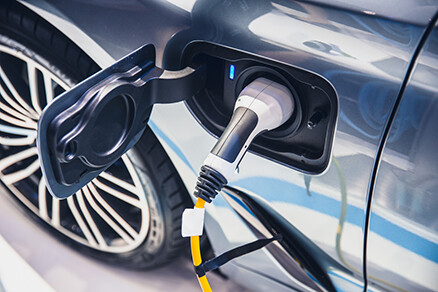If you’re following the car industry, you know that electric vehicles (EVs) are growing in popularity despite the occasional stories about battery fires or self-driving system failures. The car accident attorneys at Eason & Tambornini have helped countless drivers of both electric and gas-powered vehicles recover compensation following an accident they did not cause.
Learn more about our Sacramento Car Accident Attorney Services.
In recent years, electric vehicles (EVs) have become an eco-friendly alternative to traditional gasoline-powered cars. However, despite the many benefits, a misconception that EVs are more dangerous than their gas-powered counterparts still exists.
EV Facts
- As of 2023, the California Energy Commission reports approximately 903,000 light-duty EVs were registered in the state.
- Electric vehicles made up 25% of the new car market in California last year, an increase of about 6% from the prior year.
- California leads the U.S. in EVs and charging station locations.
- In 2022, the number of registered EVs in the United States was six times greater than in 2016
Overall Differences Between EVs and Combustion Engine Cars (gas or diesel)
 Most people know that the main difference between electric and gas-powered vehicles is that EVs are powered by rechargeable batteries, not gasoline or diesel fuel. Other key differences include:
Most people know that the main difference between electric and gas-powered vehicles is that EVs are powered by rechargeable batteries, not gasoline or diesel fuel. Other key differences include:
- Acceleration: Overall, EVs can accelerate faster than gas-powered vehicles, sometimes significantly quicker. U.S. News & World Report states that a Tesla can go from 0 to 60 m.p.h. in 60 seconds. To compare, a 2023 Nissan Sentra can accelerate from 0 to 60 in 9.2 seconds.
- EVs are typically heavier than gas-powered cars, mainly due to the weight of batteries. The heavier a vehicle is, the safer its occupants may be in a crash.
- Conversely, heavier vehicles typically do more damage to cars they collide with, making it more dangerous for occupants of other vehicles.
Batteries: The Truth about EVs
Fire risks associated with EV batteries are higher than traditional batteries in combustion engine cars. Lithium-ion batteries, commonly used in EVs, can pose a fire hazard if damaged or mishandled, including storage conditions. However, rigorous safety standards and advanced battery management systems address this risk.
EV manufacturers must adhere to strict protocols to prevent battery fires, including robust battery casing designs that manage the output heat. To address the different characteristics of an EV battery fire, emergency responders are trained in handling EV-related incidents safely.
While EV fires occur, research shows they trail gas-powered car fires by a landslide: Data from the National Transportation Safety Board shows that EVs were involved in approximately 25 fires for every 100,000 sold, compared to 1,530 gasoline-powered vehicle fires for every 100,000 sold.
Crash Course in Electric Vehicle Safety
Another concern for motorists today is safety, especially with the driver-assist and even self-driving systems that some EVs are equipped with. Like gas-powered cars, EVs must meet strict safety standards established by the National Highway Traffic Safety Administration (NHTSA).
Many EVs have earned top safety ratings in crash tests conducted by NHTSA and the Insurance Institute for Highway Safety (IIHS). Because EVs have significantly different weight distribution than combustion engine vehicles, due to Ev’s unique design for battery placement, they are nevertheless engineered to protect passengers in a collision. Additionally, the lack of large internal combustion engines in EVs increases crumple zones, enhancing passengers’ safety.
Another study by IIHS showed that electric cars were involved in 1.21 crashes per million miles driven in 2020, compared to 1.10 crashes per million miles driven by gasoline cars.
EV Maintenance and Repair
Our car accident attorneys are experienced with claims involving maintenance issues for both gas-powered cars and EVs. Maintenance and repair are often cited as potential challenges for EV owners. While it’s true that EVs have fewer moving parts than gasoline vehicles, which reduces the chance of inevitable mechanical failures, servicing an EV battery system requires specialized knowledge and equipment.
Whether you drive an EV on the cutting edge of today’s technology or a gas-powered vehicle, accidents can and unfortunately do happen. If you or a loved one has been injured in a car accident, the car accident attorneys at Eason & Tambornini are standing by. We will always fight for your best interests and do everything we can to get you the compensation you deserve for your injuries, expenses, lost wages, and property damage.
Consultations are free, and our car accident attorneys work on a contingency basis, so you pay nothing until and unless you win a settlement.
Call Eason & Tambornini right now at 916-438-1819 to schedule a free consultation. We will answer your questions and help you on the road to recovery.
